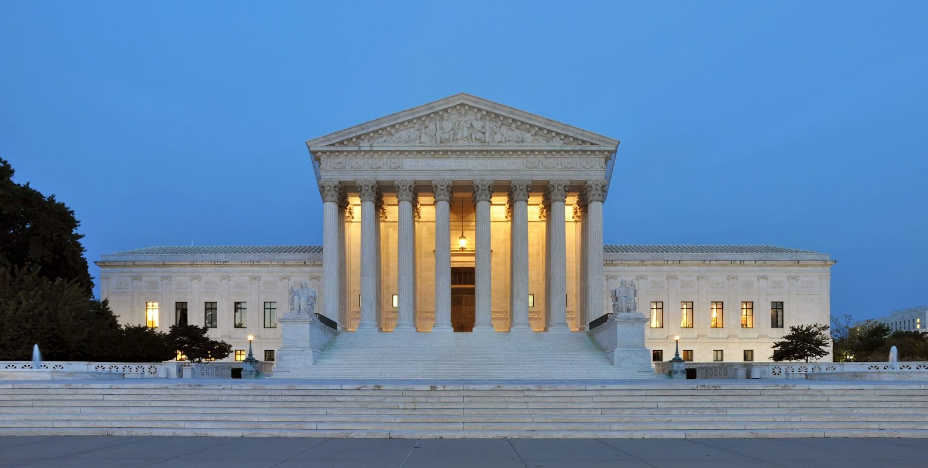This past year has seen more strikes and union action than the past two combined, creating a sort of contagion of worker protests that have impacted every corner of the American labor system. What sparked these strikes and why now?
Read MoreVirginia's public schools find themselves facing a crisis — a staggering decline in teacher retention rates. Nowhere is this more evident than in Spotsylvania County. The root cause? Demoralization among teachers, fueled by the growing influence of local politics, is pushing the limits of an already strained education system.
Read MoreIllicitly manufactured fentanyl is responsible for the overdose of thousands of Americans each year. Because of the perception of drug addiction in our society, this problem continues to increase and go untreated. We must reframe our understanding of addiction in order to address and fully rid communities of fentanyl overdose.
Read MoreBeshear is popular, he’s favored in the polls, and his opponent, Kentucky Attorney General Daniel Cameron, espouses a brand of radical right-wing politics that most Kentuckians find toxic.
Read MoreToday’s Supreme Court has brought many fundamental questions of American history and its interpretation to the forefront. While American history can serve as a helpful tool for contextualizing and inspiring political progress, the Roberts Court has also shown it can be a dangerous tool to hinder progress.
Read MoreCommonplace in the United States, tracking is an accepted practice which promises to separate students based on their levels of academic achievement and capability. However, the realization of said promise is left unfulfilled for many.
Read MoreThe Supreme Court’s decision to strike down affirmative action ignores the complex ways race has shaped practically every sector of society in America.
Read MoreFor centuries, the private and public sectors have worked together to create a system of profiteering from the real estate market. Examples of the damage they have caused to local communities can be seen across the nation, even within Charlottesville.
Read MoreThe Wisconsin Supreme Court election earlier this year illustrated the political nature of the fight for Supreme Court seats. With millions of dollars pouring into the race from various political groups, the race was the most expensive state court race in history. It illustrated that voters and interest groups view the control of courts as a means to political results.
Read MoreOften times, the American people are told that only incremental, slow change can be achieved. They are told that moderate politicians have ostensibly the same goal, to help, but are just more realistic than "radicals" like Bernie Sanders. Despite consistent polling to the contrary, politicians aligned with corporations have claimed that they stand with the people in opposition to a stronger social safety net. These are lies. Through corporate induced, profit motivated obstructionism, supposedly "moderate" politicians blocked popular initiatives while those who advocated the bill shied away from confrontation to the detriment of their cause.
Read MoreIn constitutional questions regarding police encounters, the Supreme Court often defers these decisions to Congress. In doing so, the rights of citizens to seek justice for the wrongful behavior of law enforcement officers are left in the hands of hyperpolarized politicians who fail to hold police accountable, leaving the rights of citizens in legal limbo.
Read MoreWhen partisan divides appear stronger and more rancorous than ever, many Americans have been left without hope for the political future. Yet, in the midst of these tensions, there have been notable instances of bipartisan efforts across levels of government.
Read MoreThe process of student tracking, despite seeming practical, has had many unhindered consequences on student education, particularly with the education of minority students. At first glance, this system makes perfect sense by having students placed into classes seemingly catered to their experience and abilities, but studies on the effects of tracking suggest it may be perpetuating systemic racial and socioeconomic inequality.
Read MoreThe first amendment clearly states that the federal government shall not interfere with US citizens’ religious freedom. But does this mean that religion and politics are completely separated in the United States today?
Read MoreOver recent decades, Congress has progressively grown less effective, forcing the Supreme Court to address these issues in ways that are inconsistent with public opinion. Recent controversial decisions have led to questions regarding the legitimacy of the Supreme Court and the need for judicial reforms.
Read MoreGrades, as a tool for measurement and for learning, are a fundamental part of American education but its negative effects often go ignored. As studied by psychology, grades are immense obstacles to curiosity and the long-term learning of students.
Read MoreEver since Ketanji Brown Jackson was nominated by President Joe Biden and recently confirmed by the Senate to be the next member of the Supreme Court, discourse continues to rage over whether she is qualified for the position. Are critics of Jackson right in their doubts, or are they mistaken?
Read MoreThe Indian Child Welfare Act prevents Native children from being removed from Native communities. Some want to see it overturned, but doing so could lead to genoicide.
Read MoreWhen it comes to political polarization, are differences between American political parties’ personalities the cure or the disease?
Read MoreWhy a third party won’t fix America’s political system and what will
Read More



















